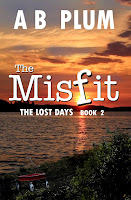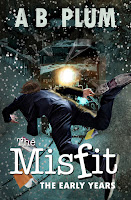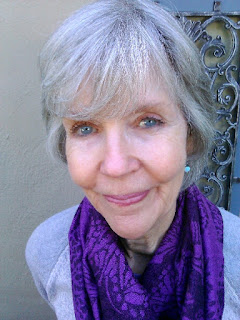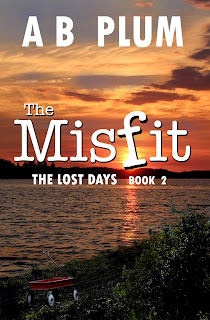Tag Archive for: The MisFit
TIME–A PERSONAL TAKE
/in Uncategorized/by ABPlumUnlike with a baby, no need to feed or soothe back to sleep. Our consciousness crashed—until the next ninety-minute interval.
Entering a Time Capsule
/in Uncategorized/by ABPlum |
|
AB Plum lives and writes in Silicon Valley, where time runs at a break-neck pace. Her latest book The Lost Years becomes available on Amazon on March 17–which will be here before she blinks.
|
ALTERNATE FACTS—WHAT’S THE BIG DEAL?
/in Uncategorized/by ABPlumBy A B Plum
Foresight and Hindsight
/in Uncategorized/by ABPlumBecause she could bore you to death with her aches and pains in two minutes flat.
Like a spider, she never let her victim escape in less than half an hour’s recitation about her medications, her insomnia, her indigestion, her aching feet, her hair loss, an undiagnosed medical condition so rare it belonged in medical books.
A hang nail, so the gossip went, would send her to the hospital in a flash.
hindsight, I wish I’d had the foresight to benefit from current insights:
- Not everyone is fortunate enough to enjoy good health throughout life.
- Listen to others whose misfortunate is to be sick for short or long periods.
- Aunt Edie, we ‘done’ you wrong!
A Fix for Your Post-Halloween Fog
/in Uncategorized/by ABPlum |
| But you didn’t count on the doorbell interrupting— from dusk right up until your bedtime. |
Thunder rumbles. You shiver, pop a Snickers bar, and start reading the blurb . . .
Delusional Logic Behind New Psychological Thriller
/in Uncategorized/by ABPlumUnexpected Consequences of Reading Too Well
/in Uncategorized/by ABPlumBy AB Plum
Go here for a look at DJSS. https://www.amazon.com/Dick-Jane-Reading-Collection-Volumes/dp/0448437104
3 Lessons Learned about Fitness from a Recent Novel
/in Uncategorized/by ABPlummorning walk, I dodged an oncoming car. I banged into a cement barrier, broke 4
toes, sprained my ankle, and bruised a tendon. During the slow recovery—no
weight-bearing exercise—I read a lot. The book I was looking forward to the
most proved the most disappointing.
being confined to a wheelchair for a month and wanted some vicarious exercise.
I could’ve chosen from an array of main female characters who swim, row, box,
jog, hike, climb rock walls, practice Tai’chi, and a myriad of other physical
activities.
bestseller in which one of the main characters exercised by eating too many
potato chips and pizza. She played
basketball as a teenager, but Life 101 intervened and . . .
okay, I got it. I was, after all, reading her story because of Life 101.
learned: Authors should avoid putting a
woman with the fitness level of 0 in a series of scenes where she’s drugged,
kept in a car trunk unconscious, breaks her collarbone, fights mano a mano with
the bad guy, and wins. Compared to this character, I’d suffered no physical
impairment—yet I could barely walk after weeks of taking care of my
injuries. Did the Author really want me
to suspend logic?
us to lift cars and other Herculean feats in emergencies, but c’mon.
learned: Authors lose the hard-earned
loyalty of their fans with this kind of character portrayal. I’ve read everything this author has
published, but I’ll think twice about buying her next book.
other lesson here: The big-time critics
gave this book rave reviews. Across the board. I should’ve read the reader
reviews. No matter what, we writers
cannot fool our audience.
same lessons apply to male characters who somehow morph into Superman. I just
didn’t read any of those while waiting to begin my morning walks again.
more forgiving of an author’s over-the-top characterization for the sake of
entertainment? Do you have favorite heroines who exercise regularly?
AB Plum writes psychological suspense about jealousy, revenge, and murder. Her newest novella, The MisFit, is coming soon.
7 Questions Turn a Pink Bicycle into a Mystery
/in Uncategorized/by Marjorie Brodyby AB Plum
 Walking alone, because I lope rather than walk, before breakfast offers a chance to think. Or let my mind wander. Birds and trees and pots of flowering plants brighten my route in a nearby church parking lot. Two weeks ago shortly before sunrise, the pink bicycle surprised me.
Walking alone, because I lope rather than walk, before breakfast offers a chance to think. Or let my mind wander. Birds and trees and pots of flowering plants brighten my route in a nearby church parking lot. Two weeks ago shortly before sunrise, the pink bicycle surprised me.
- What was going on?
- Why was a pink bike padlocked to a tree standing among well-manicured shrubs?
- What was inside the fancy saddlebags?
- Was the rider of the bubble-gum pink bicycle an adult?
- Would an adult choose neon-yellow-rimmed tires?
- Had Google started issuing mono-chromatic bikes instead of their signature multi-colored ones to their employees?
- Why would a Google bike be three miles from the Googleplex?
Questions—without answers—hip-hopped in my head as I walked on. A large trash container loomed at the bend of the parking lot. Suddenly, my route felt very deserted. It WAS deserted. The mystery writer in me imagined an arm extending from behind the walled trash cans. I locked my jaw.
Like any good accidental sleuth, I swore I wouldn’t scream. I fumbled for my cell phone and picked up my pace.
 Okay, I admit my heart was thumping as I approached the trash cans. Whether from fear or embarrassment I wasn’t sure. A quick search—a half- second glance—revealed an intact lock on the
Okay, I admit my heart was thumping as I approached the trash cans. Whether from fear or embarrassment I wasn’t sure. A quick search—a half- second glance—revealed an intact lock on the
sturdy wooden doors. My heart slowed, but my face burned a little. Done in by my own imagination.
Laughing, I took three more turns around the parking lot. I breezed past the pink bicycle. Didn’t miss a step trotting past the trash container. My mind, though, churned.
Would the bike still be there as I took my pre-dinner walk? What if it was? Should I check the saddlebags? Should I report my find to the church secretary? Should I accept that the pink bicycle might belong there after all? Should I stop obsessing?
The bike stood in the same place that evening, the next morning, and for fifteen days afterwards. It soon faded into the background. Story questions for my psychological suspense series, Silicon Valley Murders, tumbled in my head like clothes in the dryer. Strategies for the book launch of the prequel, The MisFit, took over. I walked faster and faster until I reached a Zen-like mountaintop several times.
Two weeks after first spotting the mysterious pink bicycle, though, it disappeared. No sign on my morning or evening walk. The minister who often parked near the same tree looked at me askance (that means as if I’d gone off my meds). Dusk was falling. He hurried to his car, calling over his shoulder he was late for dinner.
My husband listened to the disappearance-twist, but the Warriors’ game claimed his attention. He long ago gave up understanding where ideas for my stories start. He definitely never caught my interest about a parked bike. What was the big deal?
Admittedly, I don’t foresee a pink bicycle in any of my upcoming novels about a psychopathic killer . . . though he does grow up in Denmark, where bicycling is almost as ubiquitous as it is in Holland . . .
What about you? What kinds of ordinary objects kick start your writer’s imagination?
 AB Plum was born reading—according to her mother. She started writing shortly thereafter. Careers in teaching, public libraries, and high-tech in Silicon Valley ate into her writing, but she kept a journal of ideas for future novels. She reads widely and writes across the genres of romantic comedy, romantic suspense, and now psychological suspense. She went from publication with a traditional NY publisher to an E-publisher and now is jumping into self-publishing with her upcoming novella, The MisFit. When she’s not reading or writing, she hikes just off the fast lane in Silicon Valley.
AB Plum was born reading—according to her mother. She started writing shortly thereafter. Careers in teaching, public libraries, and high-tech in Silicon Valley ate into her writing, but she kept a journal of ideas for future novels. She reads widely and writes across the genres of romantic comedy, romantic suspense, and now psychological suspense. She went from publication with a traditional NY publisher to an E-publisher and now is jumping into self-publishing with her upcoming novella, The MisFit. When she’s not reading or writing, she hikes just off the fast lane in Silicon Valley. 








